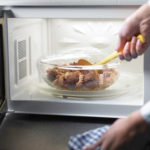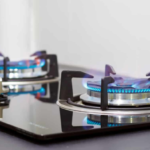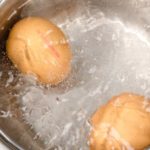Boiled chicken and duck are familiar dishes in many households. Although both are poultry, they have distinct characteristics and flavors, which call for different cooking methods. Typically, when boiling chicken, it is common to start with cold water. In contrast, when boiling duck, people usually wait for the water to boil before adding the duck. Why is there such a difference in approach?
Why Use Cold Water for Boiling Chicken?
Starting with cold water helps prevent the chicken skin from peeling or tearing. If the chicken is placed in already boiling water, the drastic temperature difference can cause the skin to contract and tear more easily.
To ensure a visually appealing boiled chicken, it is recommended to place the chicken in the pot while the water is still cold. Position the chicken breast-side down, ensuring that the water completely covers the chicken. This method allows the chicken to cook gradually and evenly, preventing it from turning dark.
Once the water reaches a rolling boil, reduce the heat to medium. Avoid maintaining a vigorous boil, as it can cause the skin to tear. Use a ladle to skim and discard the foam that forms on the surface. Continue boiling for approximately 7-8 minutes.
For added flavor, consider adding a crushed clove of garlic and a knob of ginger to the pot. Depending on the weight of the chicken, adjust the boiling time accordingly. For a younger, tender chicken, an additional 5 minutes of boiling may be sufficient. Older, tougher chickens may require an extra 10 minutes.
After boiling, avoid removing the chicken immediately. Instead, cover the pot and let the chicken sit in the hot water for another 5-10 minutes. This step ensures the chicken is thoroughly cooked, retaining moisture and resulting in tender, juicy meat, while also preventing the skin from turning dark.
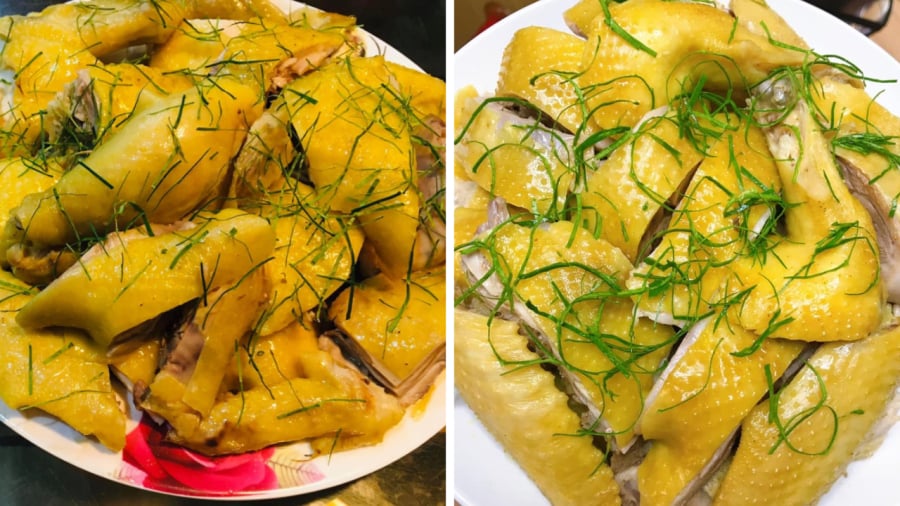
Using cold water to boil chicken prevents the skin from contracting and tearing.
Once the chicken is cooked, don’t rush to cut it into pieces. Prepare a bowl of ice water and submerge the boiled chicken in it to cool it down. The ice water helps tighten the skin, firm up the meat, and also prevents the skin from turning dark. You can also squeeze some lemon juice into the ice water for added flavor and to further prevent discoloration.
Once the chicken has cooled, remove it from the ice water and cut it into desired portions.
Why Use Hot Water for Boiling Duck?
Unlike chicken, duck has thicker skin that is less prone to tearing, so it is suitable to boil duck in hot water. Using hot water helps eliminate any fishy odor from the duck and results in tender, flavorful meat. When the duck is placed in hot water, the surface proteins contract rapidly, sealing in nutrients and the natural sweetness of the meat.
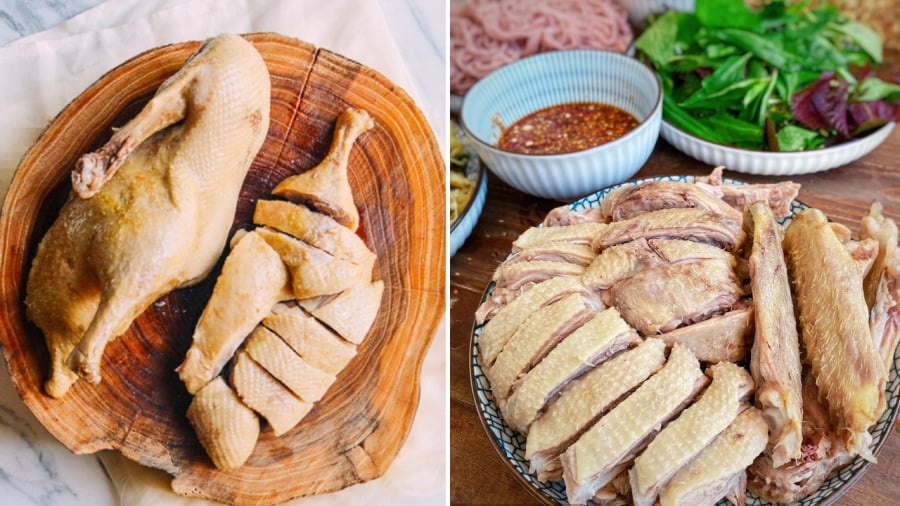
Hot water helps retain the sweetness of the duck meat.
Ensure the water level is sufficient to completely submerge the duck. Add crushed ginger, dried shallots or onion, a pinch of salt, and a splash of white wine to the pot, and bring it to a boil. Once the water is boiling, carefully lower the duck into the pot. Some people prefer to blanch the duck in boiling water before transferring it to the pot for boiling.
When the water returns to a boil, reduce the heat to low and skim off any foam that rises to the surface.
Adjust the boiling time according to the size of the duck. Typically, boiling a duck takes around 15 minutes. Once the duck is cooked, do not remove it from the pot immediately. Instead, turn off the heat, cover the pot, and let the duck sit in the hot water for about 10 minutes. This step ensures the meat is thoroughly cooked and prevents the bones from appearing red.
If you prefer crispy skin, prepare a bowl of ice-cold water and submerge the boiled duck in it for a few minutes to tighten the skin and firm up the meat. Once the duck has cooled, remove it from the ice water, pat it dry, and cut it into desired portions.
This ice bath technique also helps prevent the duck meat from falling apart when cut.

























